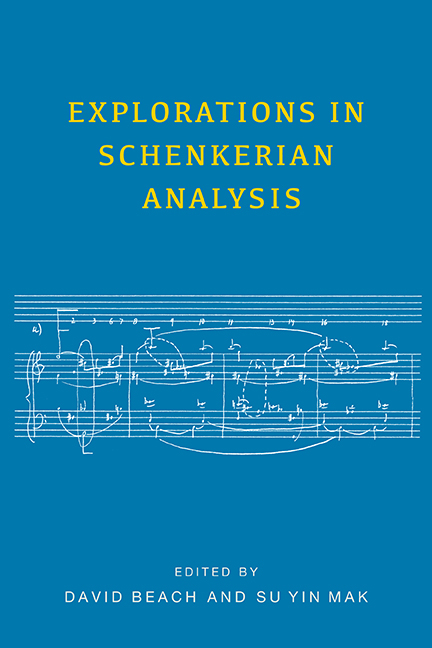Book contents
- Frontmatter
- Contents
- Preface
- Part One Eighteenth Century
- Part Two Early Nineteenth Century
- 6 Schubert's “Unfinished” Symphony: Analytical Observations
- 7 Structural and Form-Functional Ambiguities in the First Movement of Schubert's Octet in F Major, D. 803
- 8 The Form of Chopin's Prelude in B-flat Major, Op. 28, No. 21
- 9 “All That Is Solid Melts into Air”: Schumann's Overture to Manfred
- 10 Endings without Resolution: The Slow Movement and Finale of Schumann's Second Symphony
- Part Three Late Nineteenth Century
- Appendix: An Interview with Edward Laufer
- List of Contributors
- Index
9 - “All That Is Solid Melts into Air”: Schumann's Overture to Manfred
from Part Two - Early Nineteenth Century
Published online by Cambridge University Press: 28 June 2018
- Frontmatter
- Contents
- Preface
- Part One Eighteenth Century
- Part Two Early Nineteenth Century
- 6 Schubert's “Unfinished” Symphony: Analytical Observations
- 7 Structural and Form-Functional Ambiguities in the First Movement of Schubert's Octet in F Major, D. 803
- 8 The Form of Chopin's Prelude in B-flat Major, Op. 28, No. 21
- 9 “All That Is Solid Melts into Air”: Schumann's Overture to Manfred
- 10 Endings without Resolution: The Slow Movement and Finale of Schumann's Second Symphony
- Part Three Late Nineteenth Century
- Appendix: An Interview with Edward Laufer
- List of Contributors
- Index
Summary
Most people would associate Robert Schumann more readily with the music theorist Adolf Bernhard Marx than with the political theorist Karl Marx. Yet Schumann's Manfred, op. 115, calls to mind a famous line from The Communist Manifesto, written by the latter Marx in 1848, the same year in which Schumann composed his incidental music to Byron's Manfred. The line is that quoted in my title. It applies in a fairly obvious way to Byron's dramatic poem. In a less obvious way, it also applies to Schumann's music, especially the overture. I have no intention of giving either Manfred a Marxist interpretation (although it would be possible to do so). What melts in Schumann's overture is not the social fabric of precapitalist society, as in the Manifesto, but those two most solid of tonal pillars, the tonic and the dominant. The more one tries to grasp them, the more they slip through one's fingers, in ways that underscore and even create the music's dramatic meaning.
Similarities between Byron's Manfred and Goethe's Faust, for which Schumann also provided music, have been discussed ever since Goethe himself noted the resemblance. Like Faust, Manfred has shunned human company in favor of philosophy and magic, pursuits that have left him unsatisfied. What Manfred seeks is not knowledge but oblivion. He wishes to die but is unable to kill himself—fearing, like Hamlet, that death will not end his agony. He is unable even to go mad. He is more defiant than Faust, angrily dismissing priests and demons, seeking neither salvation nor damnation but taking full responsibility on himself. He speaks to spirits and witches, but he never allows them to gain power over him; he uses them for his own purposes. Even the spirits admire his self-possession. As one says:
[H]e mastereth himself, and makes
His torture tributary to his will.
Had he been one of us, he would have made
An awful Spirit.
- Type
- Chapter
- Information
- Explorations in Schenkerian Analysis , pp. 155 - 176Publisher: Boydell & BrewerPrint publication year: 2016



